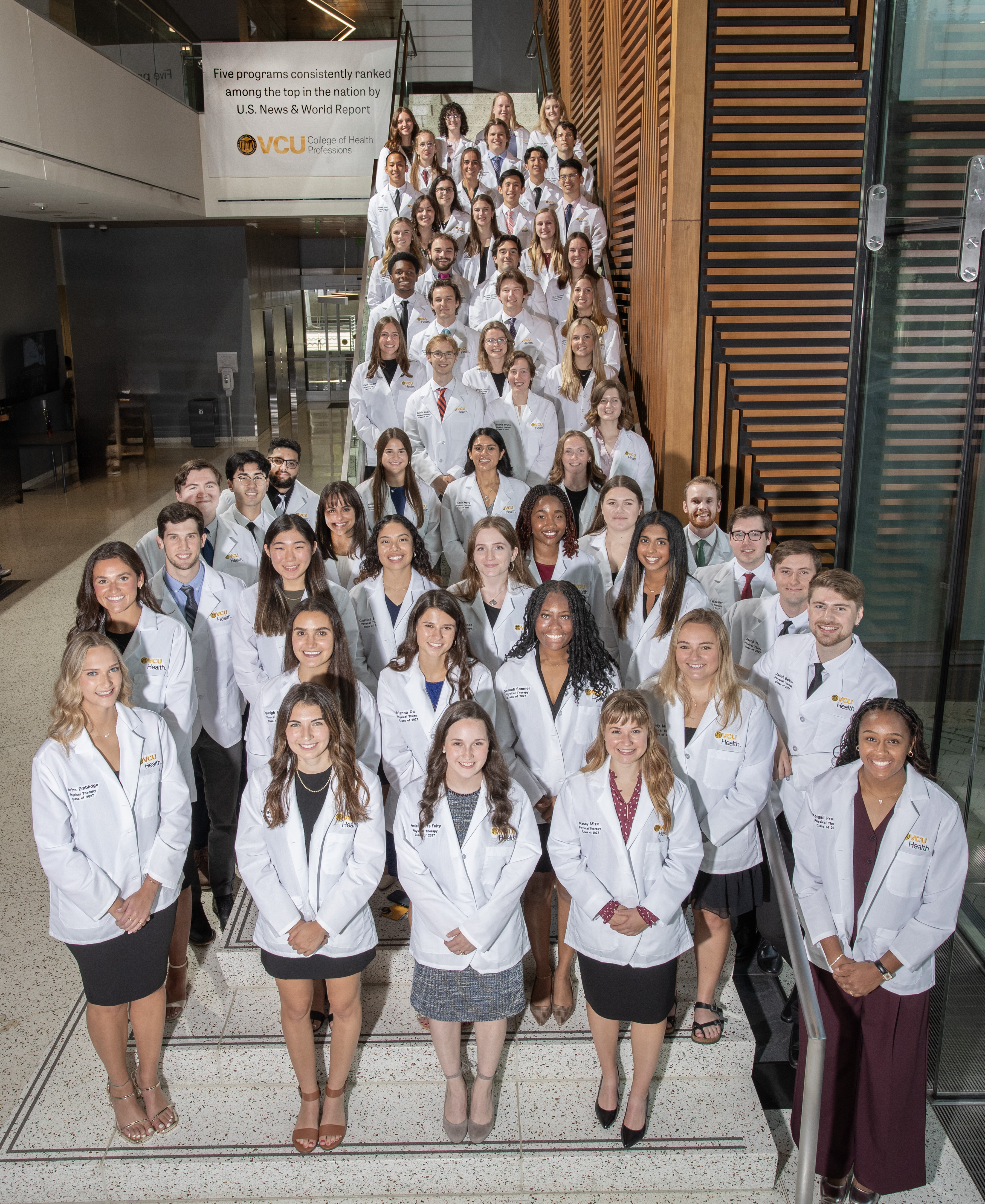Physical Therapy students launch degree journeys at White Coat Ceremony
 In pairs, members of the Class of 2027 crossed the Kontos Building stage to accept their white coats – a symbol of their commitment to their future profession as physical therapists.
In pairs, members of the Class of 2027 crossed the Kontos Building stage to accept their white coats – a symbol of their commitment to their future profession as physical therapists.
But Amy R. Darragh, Ph.D., dean of the College of Health Professions, told the 58 students that this White Coat Ceremony, held Sept. 6, is “more than just a rite of passage.
“In the next few minutes, as you put on your white coat, you are stepping into a role that demands not only expertise and dedication, but also empathy and integrity,” Darragh said. “You’ll be at the forefront of efforts to improve patient outcomes, reduce health disparities and promote equity in health care. Your work will not only be about healing and about rehabilitation, but also about advocating for those who need it most and leading change in a rapidly evolving environment.”
Kevin Ford, DPT, understands those demands firsthand. When people ask the 2003 VCU alum what he does for a living, he answers simply: “I optimize human weapon systems by treating fighter pilots that defend our nation.”
As a physical therapist, he helps to ease the pain of pilots who spend hours in restricted cockpit spaces, with their bodies contorted in reclining positions without using backrests and rotating their neck for long stretches as they track enemy planes. They also often fly under a gravitational force that makes 200-pound individuals feel like they’re 1,800 pounds.
“It’s a lot of stress. … I need to figure out how to streamline interventions and help to prevent those challenges,” he said. “I couldn’t have imagined a job as a PT where I’m driving to and from work with Apache helicopters and F-16s flying overhead.”
His career journey took an unconventional path, leading him straight from high school into Army boot camp, eventually serving in a combat engineer battalion before becoming a physical therapist. But he connected the military experience, which included two deployments to Somalia, to his current profession. “I vividly remember the stark reality of the war-torn area, yet our role was to establish a foundation and build stability – much like we do here in physical therapy,” he said.
“Your success is not meant for you alone. It’s meant for others,” said Ford, calling the white coat a “symbol of the trust” that society places in providers.
He encouraged students to seek mentors who can help them cultivate their individual strengths, reminding them that “your unique skill set is what matters,” Ford said. “You would not be here right now in this seat if you didn’t have what it takes.”
Ford encouraged the incoming students to identify mentors along their journey, to keep reigniting purpose across their careers, to practice gratitude and to focus on the positivity in having the opportunity to make a difference in others’ lives. That is never more important, he said, than when struggling with patients whose disappointments turn into bitterness or when fighting insurance reimbursements.
“Embrace each challenge as a chance to grow,” Ford added, “and let your commitment to excellence and your compassion guide you.”